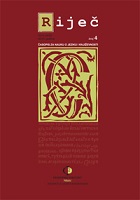Implicitna hrabrost u anglosaksonskim elegijam
Implicit Courage in the Anglo-Saxon Elegies
Author(s): Janko AndrijaševićSubject(s): Other Language Literature, Personality Psychology, Theory of Literature
Published by: Filološki fakultet, Nikšić
Keywords: Anglo-Saxon elegies; Book of Exeter; personality psychology; bravery;
Summary/Abstract: The six Anglo-Saxon elegies preserved in the Exeter Book testify about that side of life - human vulnerability - that was untypical of the Germanic tribes who invaded the British Isles in the early middle-ages. This is not a surprising fact, since the tribes’ very existence depended on bravery and since vulnerability almost invariably meant demise. However, unlike battlefield heroism, which was a non-disputed ideal of this age glorified in most of Anglo-Saxon literature, including some Christian poems, the six elegies expose descriptions of outer and particularly of inner struggles. They depict weak emotional spots, illustrate suffering and recreate ordeals. Still, these poems are not about human powerlessness, they are as much about courage as most other Anglo-Saxon poems, although in a largely different and much more implicit way. Based on contemporary psychological interpretations and classifications of the human strength of courage (derived largely from the book Character Strengths and Virtues: A Handbook and Classification by Christopher Peterson and E.P. Seligman, 2004), this paper is an attempt at analysis of the old English elegies seen from the psychological perspective.
Journal: Riječ
- Issue Year: 2010
- Issue No: 4
- Page Range: 199-212
- Page Count: 14
- Language: Montenegrine

